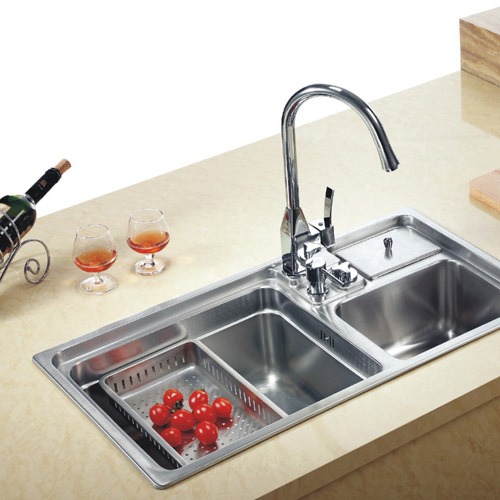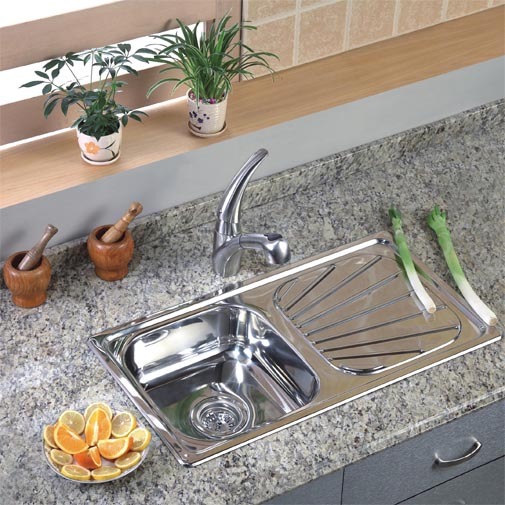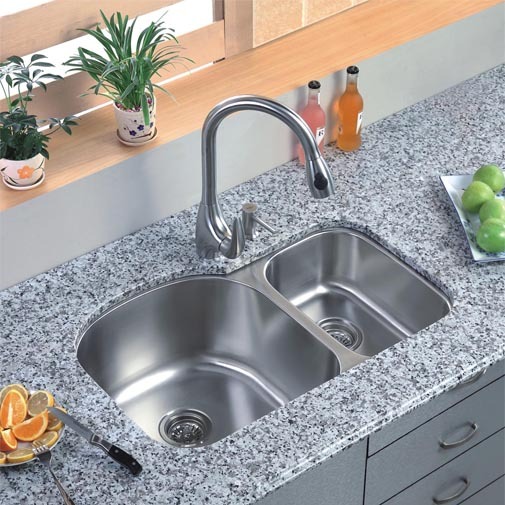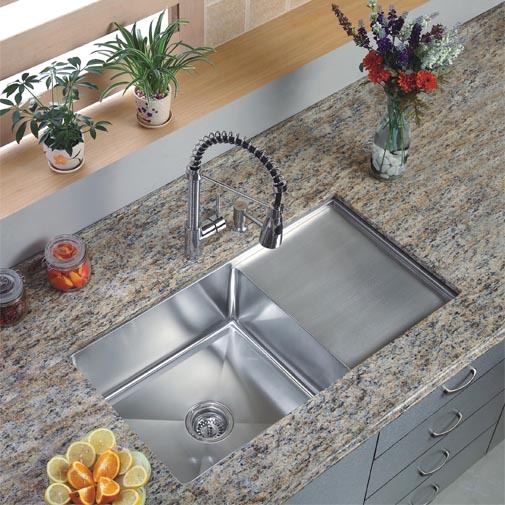Home >> Products >> Kitchen Sink
Kitchen Sink

Kitchen Stainless steel is commonly used in kitchens and commercial applications because it represents a good trade-off between cost, usability, durability, and ease of cleaning. Most stainless steel sinks are made by drawing a sheet of stainless steel over a die. Some very deep sinks are fabricated by weldding. Stainless steel sinks will not be damaged by hot or cold objects and resist damage from impacts. One disadvantage of stainless steel is that, being made of thin metal, they tend to be noiser than most other sink materials, although better sinks apply a heavy coating of vibration-damping material to the underside of the sink.
Enamel over cast iron is a popular material for kitchen and bathroom sinks. Heavy and durable, these sinks can also be manufactured in a very wide range of shapes and colors. Like stainless steel, they are very resistant to hot or cold objects, but they can be damaged by sharp impacts and once the glass surface is breached, the underlying cast iron will often corrode,spalling off more of the glass. Aggressive cleaning will dull the surface, leading to more dirt accumulation. Enamel over steel is a similar-appearing but far less rugged and less cost-effective alternative.
See More>>Latest Hot Sale
See More>>How to Choose a fine Faucet
sinks and basins can be provided by separate hot and cold faucets; this arrangement is common in older installations, particularly in public washrooms/lavatories and utility rooms/laundries. In kitchens and bathrooms mixer faucets are commonly used. In this case, hot and cold water from the two valves is mixed before reaching the outlet, allowing the water to emerge at any temperature between that of the hot and cold water supplies. Mixer faucets were invented by Thomas Campbell of Saint John, New Brunswick and patented in 1880. Indoor faucets are commonly found in the bathroom or kitchen. This faucet is a single-handle, double-spout faucet (one spout for hot, one spout for cold).Water for baths, sinks and basins can be provided by separate hot and cold faucets; this arrangement is common in older installation
Products












